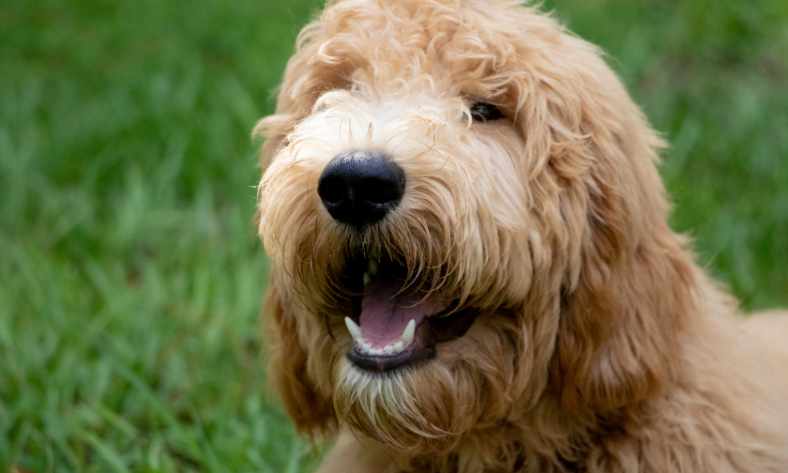Many goldendoodle owners are surprised to learn that their puppies can lose their teeth just like human babies do. While it’s not exactly the same process, goldendoodles can start losing their baby teeth around 4 months of age. Keep reading to learn more about when do goldendoodle puppies lose their teeth and what you can expect during this time.
When do goldendoodle puppies lose their teeth?
Goldendoodle puppies generally start losing their baby teeth around 4-6 months and finish losing them at 8-9 months old.
From 4 to 6 months, you may notice signs such as bad breath and tartar buildup on the goldendoodle puppy’s teeth. This is due to the adult tooth growing in underneath loosening the baby tooth, causing it to no longer cooperate with chewing.
After 6 months old, goldendoodles should have all of their permanent teeth – those familiar razor sharp points that like to chew everything from shoes to furniture!
Symptoms of goldendoodle teething
Symptoms of puppy teething can be easily alleviated by providing your goldendoodle with chew toys made specifically for their breed size or using organic treats that helps clean the teeth.

How to take care of your goldendoodle puppy’s teeth during teething
As a goldendoodle puppy’s adult teeth come in, not only is it an uncomfortable process, but it also can be hard on their little mouths.
To ensure that your goldendoodle puppy stays healthy throughout their teething process, make sure they are provided with appropriate teething items such as soft rubber toys and chews.
Brushing and flossing of the goldendoodle puppy’s teeth should begin when they are still young and gentle toothpastes should be used for extra care in delicate mouths.
Regular check-ups with your vet are important for overall dental health and further instruction of proper hygiene.
Taking good care of your goldendoodle’s teeth during teething will help them have healthier smiles for years to come.
What kind of food and toys are best for goldendoodle puppies during teething
Goldendoodle puppies go through a teething phase, just like human babies do. During this time, goldendoodle puppies need food and toys to help them stay occupied and distracted from the pain of their teeth coming in.
Look for puppy-safe foods that are high in calcium, potassium, and phosphorus such as salmon, yogurt, turkey, and sweet potato.
For toy options, giving goldendoodle puppies something soft to sink their little teeth into is ideal – a chew toy specifically designed for teething puppies can be useful.
Be sure to supervise your goldendoodle pup when it’s playing with its toys to make sure it is not swallowing any parts of them!

When to start brushing your goldendoodle puppy’s teeth and how often to do it
When it comes to goldendoodle puppies and maintaining their dental hygiene, it is important to start early.
Even with their trademark soft, curly fur, goldendoodles need much more than regular brushing. Puppies should get into the habit of having their teeth brushed regularly once they turn 4-6 months old.
Ideally, brushing should be done two or three times a week in order to keep plaque build-up at bay and prevent periodontal disease later in life.
With proper dental care and regular cleaning, goldendoodles can stay healthy far into their senior years.

How to make sure your goldendoodle puppy doesn’t have any problems with their teeth later on in life
Taking care of your goldendoodle’s teeth should be a priority from the moment you bring them home. Regular preventative dental care is key for maintaining a healthy oral environment and preventing common goldendoodle dental problems such as periodontal disease.
Start by brushing their teeth daily with a soft bristled brush using an enzymatic toothpaste. Pay attention to any tartar buildup, and make sure you also clean behind their back molars.
Professional cleaning at least every six months will help keep things in check, and you should never skip regular vet visits to screen for problems that may be brewing beneath the surface.
Taking these steps now can keep your family’s pet goldendoodle healthy and save your loved pet valuable discomfort and stress down the road.
Related posts:

Hi – I’m Erika – welcome to Sit Stay Doodle! I began this blog in honor of my beloved Goldendoodle, Daisy, who has taught me so much about goldendoodle care. Whether you’re thinking about bringing your first goldendoodle home, or an experienced doodle owner, Sit Stay Doodle is the place for you! Thanks for reading! To contact me, reach out at: sitstaydoodle@gmail.com